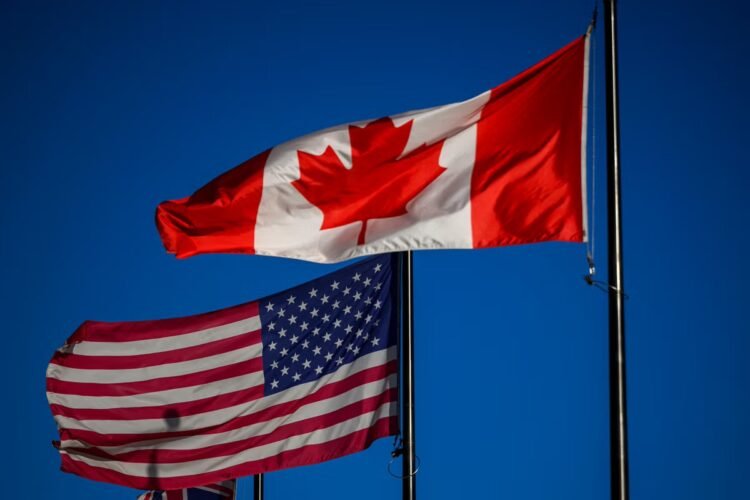Editor-in-Chief: SHAPOUR-T
Analysis of Trump’s Tariffs and Canada’s Role in the Trade Dispute
Donald Trump’s decision to impose broad tariffs on imports from Canada and Mexico has raised eyebrows, given the deep economic integration between the U.S. and Canada. Officially framed as a measure to support domestic production and combat the fentanyl crisis, this move could actually be part of a broader strategy to send a message to China.
Why Did Trump Target Canada?
-
Sending a Message to China and Other Trade Partners
One of the most likely reasons behind this decision is Trump’s attempt to show China that his tariff policies are not exclusively aimed at them. Instead, he wants to frame his trade moves as part of a broader strategy to strengthen the U.S. economy. By including Canada, he signals to Beijing that this is not a direct trade war with China, but rather an overarching economic policy. -
Gaining Leverage in Trade Negotiations
Canada is one of the U.S.’s largest trade partners, and imposing tariffs could be a pressure tactic to extract concessions in future trade agreements. Trump has used economic threats before to renegotiate trade deals, as seen in the transition from NAFTA to the USMCA. -
Boosting Domestic Popularity and Appealing to Nationalist Voters
By imposing tariffs on a close economic ally, Trump aims to reinforce his image as a champion of American workers and businesses. His message to his supporters is clear: he will take aggressive action to protect American industry, even if it means targeting longtime allies. -
Linking Tariffs to National Security and the Fentanyl Crisis
Trump has justified these tariffs by citing the fentanyl crisis. However, official data shows that fentanyl smuggling from Canada is minimal. This suggests that the fentanyl argument is more of a political tool than a genuine security concern, designed to rally public support for his trade policies. -
Pressuring Canada to Cooperate on Other Issues
The U.S. and Canada are deeply interconnected not just in trade, but also in security, energy, and foreign policy. By imposing tariffs, Trump may be trying to push Justin Trudeau’s government into aligning more closely with U.S. interests, particularly on issues like countering China’s influence and other geopolitical matters.
Final Analysis
Ultimately, Trump’s decision to impose tariffs on Canada appears to be more of a political maneuver than an economic necessity. While it increases pressure on China, it also strengthens Trump’s domestic standing, enhances the U.S.’s bargaining position in trade talks, and leverages the fentanyl crisis as a justification. However, in the long run, such policies could strain U.S.-Canada relations and disrupt the stability of North American trade.

 English
English



























































